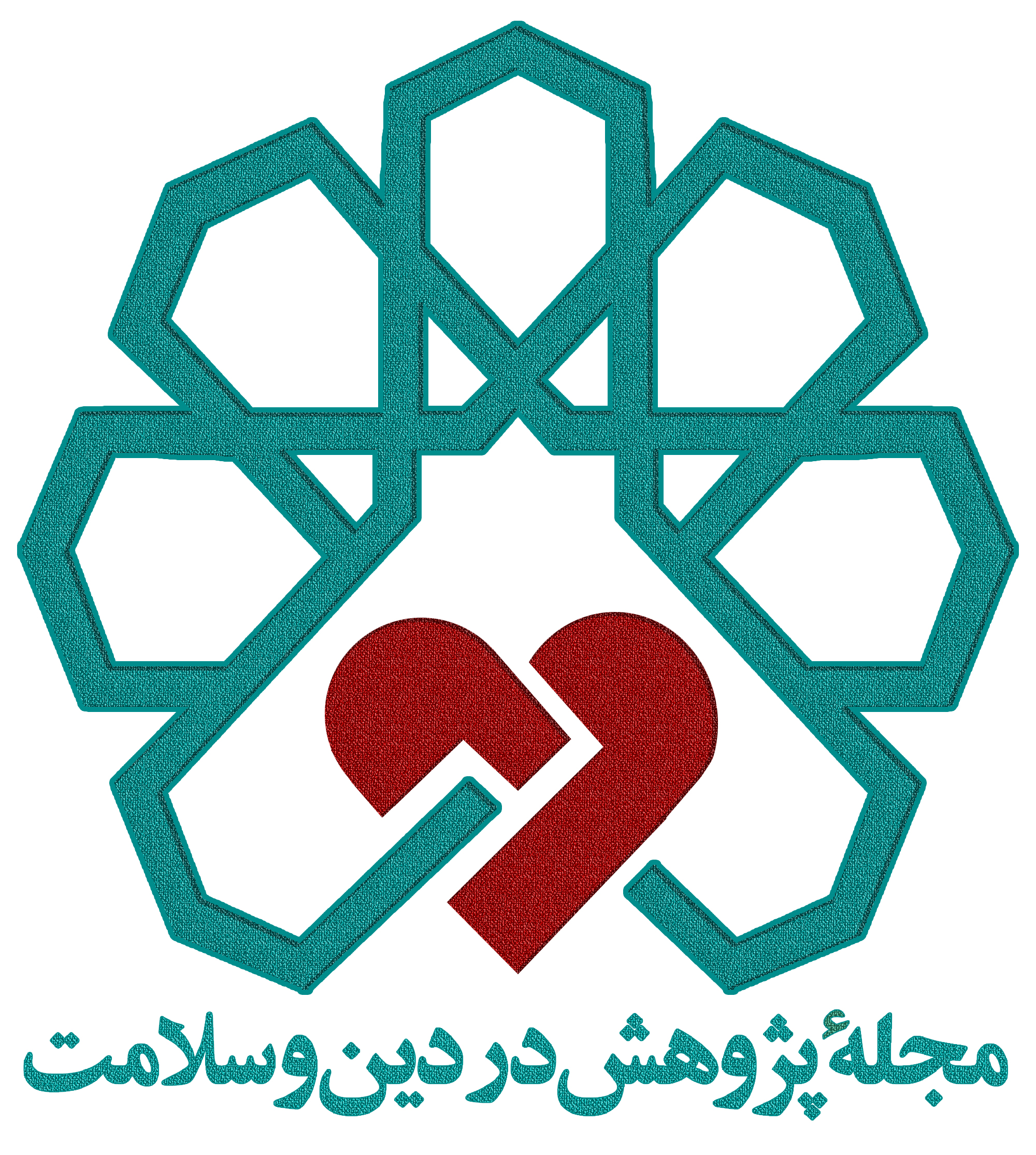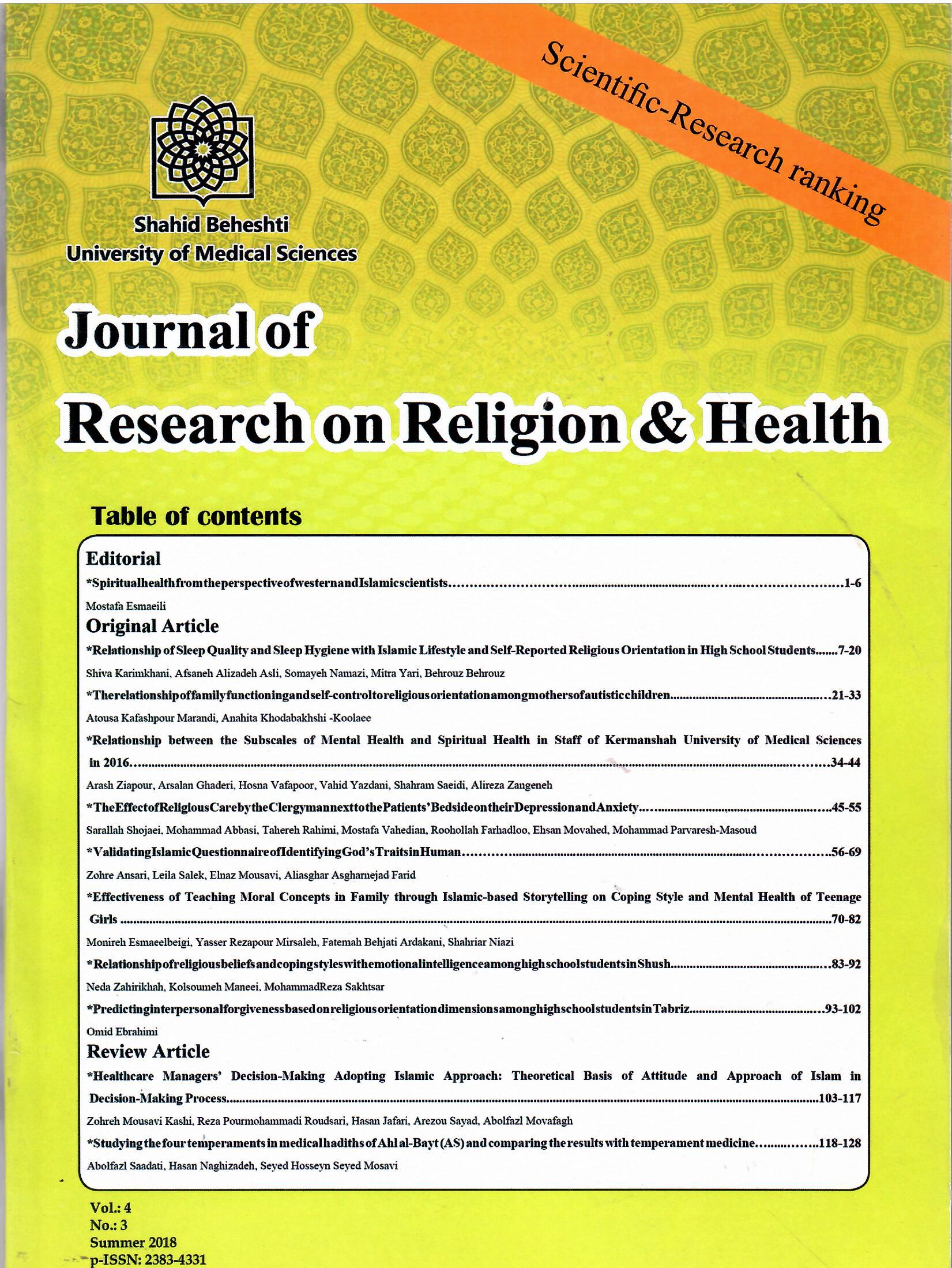Spiritual health from the perspective of western and Islamic scientists
Journal of Pizhūhish dar dīn va Salāmat (i.e., Research on Religion & Health),
Vol. 4 No. 3 (2018),
9 June 2018,
Page 1-6
https://doi.org/10.22037/jrrh.v4i3.21320
Spiritual health is a new concept in the area of health, attracting the attention of many health-related researchers in recent decades. This notion was initially proposed and developed in western societies. The health system of our country has begun to investigate the issue in recent years.
Given that spiritual health is rooted in people’s beliefs and culture (which are essential elements in defining and exploiting spiritual health), examining the Islamic and western viewpoints toward this concept prevents the waste of many resources and sheds light on the notions that have remained unknown to our society.
Please cite this article as: Esmaeili M. Spiritual health from the perspective of western and Islamic scientists. J Res Relig Health. 2018; 4(3): 1- 6.DOI: https://doi.org/10.22037/jrrh.v4i3.21320

